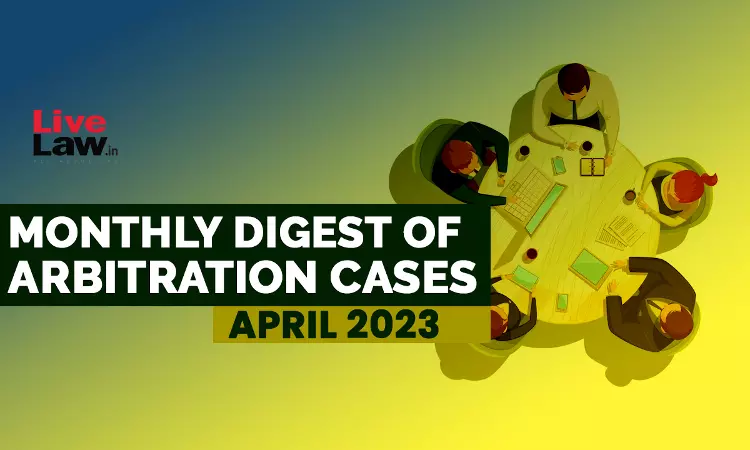Arbitration Monthly Round Up- April 2023
ausaf ayyub
3 May 2023 9:30 PM IST
Supreme Court: Arbitration Agreement In Unstamped Contract Which Is Exigible To Stamp Duty Not Enforceable: Supreme Court Holds By 3:2 Majority Case Title: M/s. N.N. Global Mercantile Pvt Ltd vs M/s. Indo Unique Flame Ltd & Ors A Constitution Bench of the Supreme Court, on Tuesday, answered the reference, which pertains to the issue - whether the arbitration clause in...
Next Story



